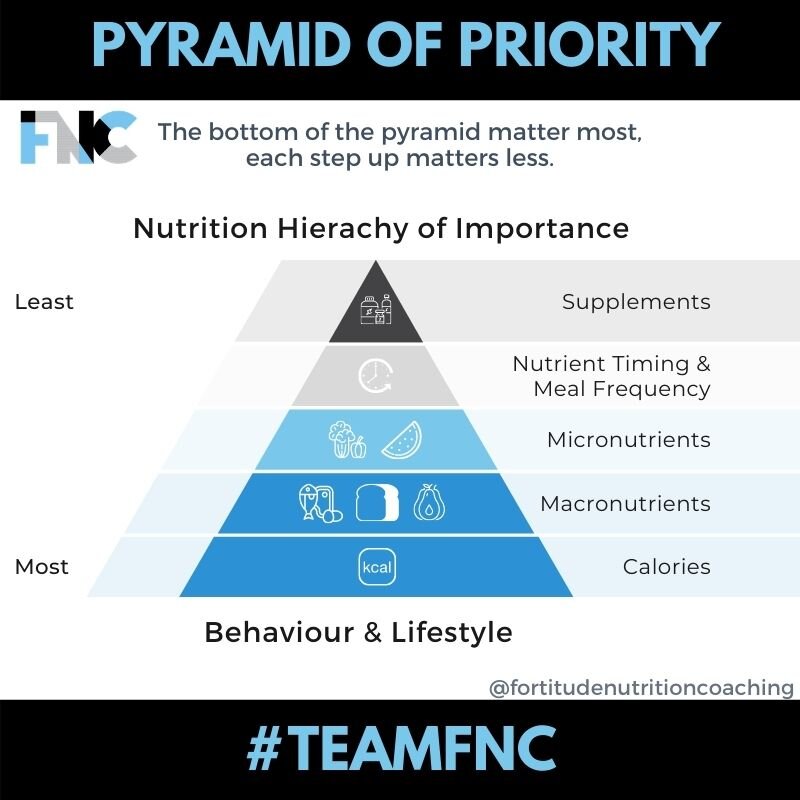8 Quick Creatine Tips
Can benefit high intensity exercise and muscle gain
It’s cheap - Costs about 10 cents per day
Creatine monohydrate is the one to buy
No need to do a loading phase or cycle it
Well researched and safe
Timing isn’t important, just take 3-5g daily
It’s not an issue to miss a day
Can lead to 1-2kgs of water retention
What is Creatine?
It’s the most effective legal supplement for improving lean body mass and high intensity sports performance. It’s been widely researched for decades and has been consistently rated as a safe supplement for healthy populations. About 70% of the 1000+ studies on creatine have reported a significant improvement in exercise capacity (1).
This seems great but don’t be fooled; it is still a supplement, still a 1%er and nothing magic. You still need to put in the work and consistency with:
training
nutrition
sleep
stress reduction
etc etc etc
What Does Creatine Do?
We use something called ATP for energy which you might have learned about in high school (PDHPE). When we run out of ATP, we need to rebuild it and this can make us feel tired. Increasing our stores of creatine can help us rebuild ATP a little faster and perform at our peak for a little longer before fatigue sets in (1)(2).
That can mean more reps, more effective reps and over time, a slight boost in gainz.
It works by saturating our muscle cells with higher levels of creatine. However we also get some dietary creatine through meat and fish. There is a lot of individual variability with our levels of stored creatine. Vegetarians and vegans tend to respond well to creatine supplementation, as their natural levels tend to be much lower due to their dietary choices(1)(2).
Note: supplementary creatine is synthetic and not made from animals (3).
What Gainz Could Creatine Give Me?
The average gain in performance from studies typically ranges between 10 to 15% depending on the variables of the study (1).
Say you bench press 100kg for 10 reps and creatine gives you a 10% increase in performance, you might then be able to bench press 100kg for 11 reps.
In long-term studies, subjects taking creatine typically gain about twice as much body mass and/or fat free mass when compared to subjects taking a placebo. This works out to a rough figure of an extra 1-2kgs of muscle mass during a training block, however muscle gains are often distorted by increases in water retention (1).
Are There Any Side Effects with Creatine?
The only notable side effect is some weight gain through water retention. For most people this is a non-issue, however for anyone competing in a sport where 1-2kgs of body weight could be a negative, it’s a consideration (1)(2).
How Much Weight Gain Does Creatine Cause?
Nearly all studies indicate that creatine supplementation increases body mass by about 1-2 kg as we saturate our muscle cells and hold onto more water (1).
How Much Creatine Should I Take?
About half of the daily need for creatine is obtained from the diet and taking 3-5 grams of creatine through supplementation daily can help us maintain saturation of our muscle cells (1)(2).
Which Type of Creatine Should I Take?
Creatine Monohydrate is the cheapest and most commonly studied type. Clinical evidence has not demonstrated that different forms of creatine promote greater creatine retention than creatine monohydrate (1)(2).
Is Creatine Safe?
Supplementation is safe and there is no scientific evidence that the short or long-term use of creatine has any detrimental effects on otherwise healthy individuals.
This includes doses of up to 30 g/day for 5 years in a number of populations ranging from youth to the elderly.
Researchers state that there is no compelling evidence that creatine supplementation negatively affects renal function in healthy or clinical populations. If you have pre-existing kidney issues, consult your medical professional before taking creatine (1)(2).
What About A Creatine Loading Phase?
This means saturating the muscle cells as quickly as possible.
Do you need to do a loading phase? For most, no. Just start taking 3-5 grams daily and within about 30 days your muscle cells will likely be saturated.
However if you have a need or want to aim for creatine saturation as quickly as possible, the quickest method of increasing muscle creatine stores appears to be to consume ~0.3 grams/kg/day of creatine monohydrate for 5-7 days followed by 3–5 grams daily to maintain elevated stores. Creatine can cause gut discomfort so if you’re using this loading protocol, it might be best to spread out the dose across the day. Say 4 doses of 5 grams would give you 20 grams per day for the loading phase.
Do I Need To Cycle On and Off Creatine?
This means taking creatine, typically in a loading protocol, then stopped creatine for a while, then taking it again.
It doesn’t appear to be necessary. Creatine works by saturating the cells and maintaining that saturation seems like your best bet. There are no currently proven health concerns with daily dosage and there have been groups studied taking creatine daily for 5 years without concern.
If you do stop taking creatine, it generally takes 4–6 weeks for creatine stores to return to baseline (1)(2).
How Much Does Creatine Cost?
It’s cheap. About 10 cents per day.
Creatine Monohydrate can be bought for about $20 per kg and using 5 grams per day gives you 200 servings at 10 cents per day.
Is Creatine Flavoured?
You can get it flavoured or unflavoured, however from our experience, the flavours suck and it’s easier to just add it unflavoured to anything you are already having - shakes, drinks, yoghurt.
Does Timing Matter for Creatine?
Timing doesn’t seem to make a notable difference so just try to aim to take it at a convenient time for you. Add it to a shake, drink, yoghurt or anything else that you want (1).
What happens if I Forget to Take Creatine One Day?
Nothing, it generally takes 4–6 weeks for creatine stores to return to baseline if you stop taking it completely. If you forget, then just start again tomorrow and try to think if you need a different routine or reminder so you don’t forget next time (1).
Where can I Read More about Creatine?
If you want to read more about creatine and learn more about how it works and which sports it may benefit, check out the first two references below which are great summaries of the 1000+ studies on creatine.
1 on 1 Nutrition Coaching with Fortitude Nutrition Coaching
Are you looking for an understanding and supportive human to talk with, to help with advice and guidance? An objective set of eyes to see what you could improve to move towards your goal in the easiest possible way?
We work with real people and get real results. Sign up for 1 on 1 Nutrition Coaching today and get the support, guidance and accountability of a Fortitude Nutrition Coach.












Tired of the "eating healthy" cycle that leads nowhere? Our blog unveils the blueprint for success. Say goodbye to vague intentions and hello to a clear Action Plan. Transform your eating habits with precision - from veggies to protein, breakfast to overcoming obstacles. Break free from the loop and embark on a fulfilling journey. Ready to achieve your goals with confidence? 🎯 Learn more: https://www.fortitudenutritioncoaching.com.au/blog/why-healthy-eating-doesnt-work